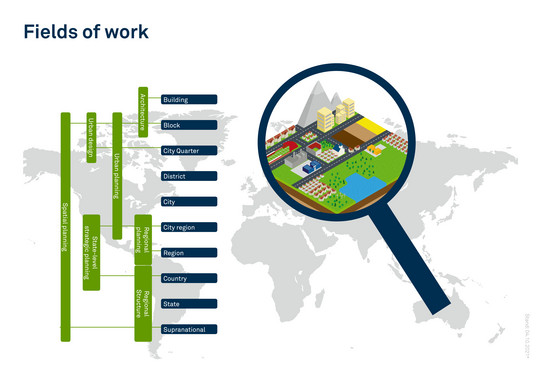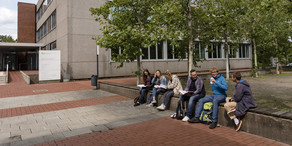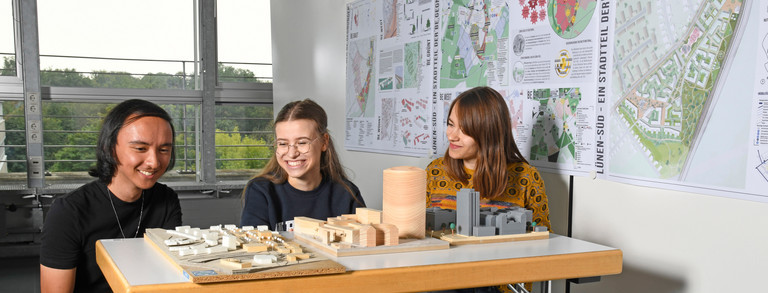What is spatial planning?
Spatial planning is an interdisciplinary field in the engineering and social sciences that deals with the spatial arrangement and development of living, working and environmental conditions at a wide range of spatial levels. The different spatial levels range from the built environment and residential quarters to the urban district, the city as a whole, the region, the state and federal levels, and even the European and international levels. On all spatial levels, different professional orientations, such as urban development, housing, traffic, landscape, infrastructure or the legal framework are considered as both independent and interrelated conditions.
The task of spatial planning is to analyze different demands, conflicts and opportunities at certain spatial level, and based on analytical findings, to identify concepts, solutions and strategies for planning and design implementation. Current and future problems are dealt with in a forward-looking manner. The aim is to support and promote sustainable and equitable development at all spatial levels.
Topics can include, for example, the effects of demographic change on the housing market and infrastructure demand, or aspects of migration and urban development. The consequences of economic structural change for regional labor markets and the location requirements of industry are also discussed, as are the consequences of environmental pollution and environmental risks.
The Department of Spatial Planning
Please confirm video activation.
After activation, cookies will be set and data is sent to YouTube (Google).
To the Google Privacy Policy

Cross-Disciplinary tasks
Spatial planning is a cross-disciplinary task, i.e. planners work across disciplines and in interdisciplinary contexts. The focus of spatial planning is on people, their needs, and the ways in which human need shapes space. The starting point is therefore the spatially relevant functions of human existence such as living, working, providing for oneself and recreating. Since spatial uses and demands often overlap and conflict with each other, it is the task of spatial planning to weigh the concerns against each other and the interest of the common good to search for environmentally, socially and economically compatible solutions.
Due to constant changes in society, spatial planning is confronted with changing demands on the use of space, to which it must respond openly and flexibly.
Spatial planning skills
In order to develop and implement solutions and strategies, planners need not only technical knowledge but also the ability to recognize and analyze problems and situations and to find conceptual, creative solutions. This requires a fundamental interest in design, political, economic, ecological, legal and sociological issues, as well as the ability to familiarize oneself quickly with new topics.
Furthermore, communicative skills are indispensable for working in a team and for dealing with the different positions of all actors involved in the planning process, such as experts, politicians, citizens, companies, authorities or civil society groups. The courses offered by the Department of Spatial Planning are therefore designed to provide students with the relevant technical and methodological skills, skills for self-motivated independent work, cooperative work, and comprehensive skills for scientific work.











